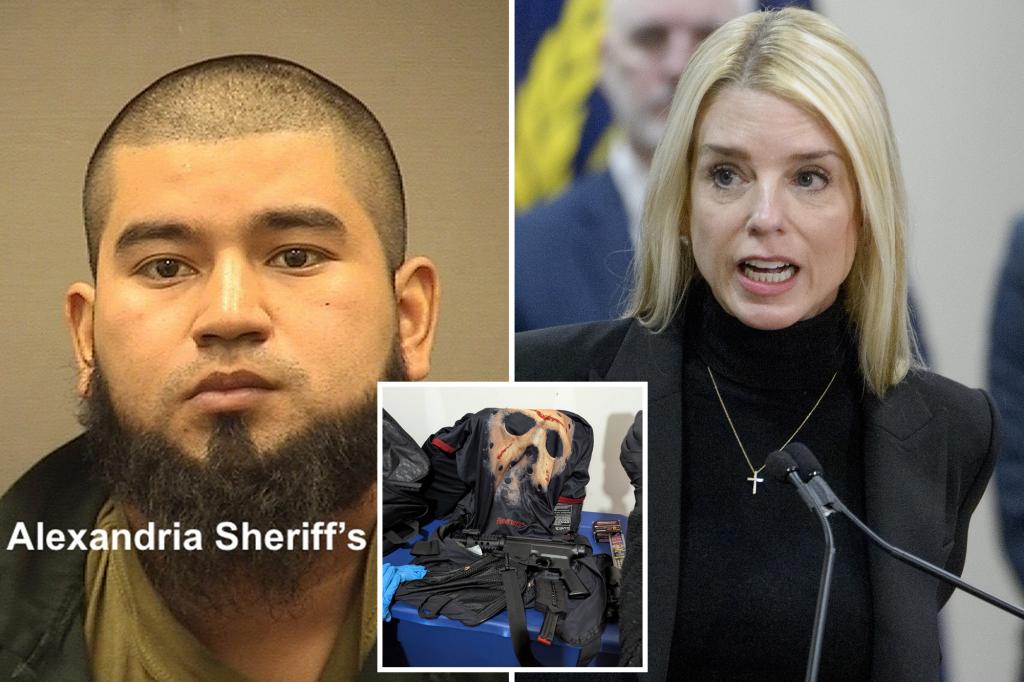DOJ Considers Dismissal of Key Charge Against MS-13 Leader: What’s at Stake?
The Department of Justice (DOJ) is reportedly considering dismissing a major charge against a high-ranking MS-13 leader arrested in a high-profile Virginia operation. This potential move, which could significantly impact ongoing efforts to combat transnational gang violence, has sparked debate among legal experts, law enforcement officials, and advocacy groups. The decision hinges on evidentiary concerns but raises broader questions about prosecutorial strategy and public safety.
The Case and Its Legal Complexities
The defendant, whose identity remains sealed due to ongoing proceedings, faces multiple charges, including conspiracy to commit murder and racketeering. However, prosecutors have flagged potential weaknesses in the evidence supporting a critical terrorism-related charge—a designation that carries stiffer penalties and reflects MS-13’s classification as a transnational criminal organization.
Legal analysts suggest the DOJ’s deliberation underscores the challenges of prosecuting gang leaders under post-9/11 terrorism statutes. “Terrorism charges require proving specific intent to intimidate or coerce a population or government,” said former federal prosecutor Elena Carter. “If the evidence doesn’t clearly support that, dismissing it preemptively avoids an appellate reversal later.”
Key case details:
- Arrest Location: Northern Virginia, a hotspot for MS-13 recruitment
- Operational Scope: Part of a multi-agency crackdown spanning five states
- Potential Impact: A dropped charge could weaken symbolic deterrence but streamline the trial
Law Enforcement’s Dilemma: Strategy vs. Symbolism
MS-13, or Mara Salvatrucha, has been a top target for U.S. law enforcement due to its brutal tactics and cross-border operations. The DOJ’s consideration to drop the charge reveals a tension between maximizing convictions and pursuing politically charged designations. FBI data shows MS-13 is linked to over 200 murders in the past decade, yet terrorism convictions remain rare.
“This isn’t about going soft on crime,” argued Carter. “It’s about allocating resources wisely. A weaker charge risks acquittal, while solid racketeering cases can still put leaders away for decades.” Conversely, retired ICE agent Mark Reynolds cautioned, “Backing off terrorism charges might signal reduced urgency to gangs exploiting immigration loopholes.”
Community and Advocacy Reactions
Victims’ rights groups have expressed alarm. “MS-13 thrives on fear,” said Lucia Fernandez of the Coalition Against Gang Violence. “Minimizing charges could embolden recruits.” Meanwhile, civil rights advocates highlight risks of overreach. “Labeling gang crimes as terrorism has been used to justify aggressive policing in immigrant communities,” noted attorney Javier Mendez.
Local Virginia leaders are divided:
- Supporting the DOJ: Some argue streamlined cases prevent delays and overcrowded dockets.
- Opposing the Move: Others fear it could undermine recent gains in reducing gang-related homicides, which dropped 15% in the region last year.
The Bigger Picture: Policy and Precedent
The DOJ’s decision could set a precedent for how transnational gangs are prosecuted. A 2021 study in the Journal of Criminal Law found that terrorism charges against gangs have a 58% conviction rate—lower than racketeering’s 73%. However, the former carries longer sentences and greater deterrence value.
Global implications also loom. MS-13 operates in at least 10 countries, and U.S. prosecutions often influence international partners. “Cooperation with Central American governments hinges on showing we’re treating this as a top-tier threat,” said security analyst Daniela Torres.
What Comes Next?
Legal experts anticipate three potential outcomes:
- Charge Dismissal: The case proceeds without the terrorism enhancement, focusing on violent crime and RICO statutes.
- Plea Deal: The defendant cooperates in exchange for reduced charges, aiding broader investigations.
- Prosecution Push: The DOJ doubles down, testing novel legal theories to expand counter-gang tools.
The decision, expected within weeks, will reverberate beyond this case. For now, stakeholders are left weighing a delicate balance: ensuring justice while preserving the integrity of the legal process.
Call to Action: Stay informed on this developing story by subscribing to our newsletter for expert analysis on criminal justice and national security.
See more Update My News



